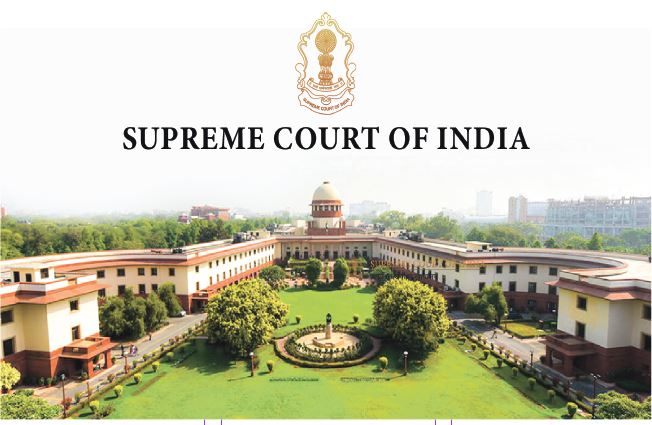By Dr Olav Albuquerque
THE people of India, who are the custodians of the Constitution, have delegated their power to the judiciary which is not bound by a popular mandate, unlike the executive and the legislature. This fuels charges of judicial autocracy. The sovereignty of the Constitution is above the sovereignty of the executive, legislature and the judiciary, to ensure that one branch does not encroach upon the independence of the other. But these ideals are breached with impunity today.
The 25 high courts and the Supreme Court enjoy the power of judicial review of Constitutional amendments which can only be struck down on the ground of violating fundamental rights or the basic structure. Secondly, though the second and third judges case, the Supreme Court assumed the power of appointing judges, and thirdly, it expanded the scope of the right to life and liberty under Article 21 to include the right to education, a clean environment and the right to file a Public Interest Litigation (PIL) by writing a post-card. Today, neither the Supreme Court nor the high courts will convert post-cards or emails into PILs.
GOVERNMENT VIOLATING RIGHTS
WHEN the government refuses to allow a debate in Parliament about Chinese transgressions into Indian territory or refuses to renew Foreign Contribution Regulation Act (FCRA) licenses to inconvenient NGOs, they are violating fundamental rights. The same is the case when scholarships are cancelled to students from the minority religions in schools. When the law minister tells the judiciary it should curtail its vacations, not hear bail applications or frivolous PILs, the executive is crossing its limits. The signal is clear — the government intends to enact a law to appoint judges.
Constitutional sovereignty was articulated in the Keshavananda Bharati case, when the judges by a seven to six majority ruled certain fundamental rights in the Constitution which were inviolable for all time. This came to be known as the basic structure of the Constitution. Few know the seeds of this “basic structure doctrine” are to be found in the Government of India Act, 1935 which lays down the separation of powers between the executive, legislature and the judiciary.
A singular facet of this basic structure doctrine was judicial independence which is synonymous with preserving the rule of law. This was why the judiciary struck down the National Judicial Commissions Act, 2015 which arose from the 99th amendment to the Constitution. However, this judgment has now been questioned by Vice-President Jagdeep Dhankar and Law Minister Kiren Rijuju, who said the people’s mandate exercised through Parliament could not be overturned by the judiciary.
MISUSING INDEPENDENCE
WITH the greatest respect due to them, they are wrong. This is simply because the judiciary derives its existence from Articles 124 and 217 of the Constitution – not from the people’s mandate which changes with changing circumstances. There is no doubt that the judiciary has misused its independence by appointing judges in secrecy on the specious ground that it knows best what is good for the nation. But by blocking judicial appointments reiterated by the Supreme Court collegium, the government appears to be violating the rule of law by committing contempt.
If we take a cursory look at other countries, the President of the USA appoints Supreme Court judges for life, subject to confirmation by the Senate, while the state governors appoint state judges based on recommendations by a merit commission. The UK too has set up a commission to appoint its judges. In Iraq, sitting judges interview incumbents who have to first pass written and oral tests conducted by a judicial academy, while in Japan, a Supreme Court secretariat appoints subordinate judges, trains and promotes them.
In Germany, their Parliament appoints judges to the Constitutional courts with a supermajority vote of 2/3rd which leads to a partisan judiciary. Obviously, we need to incorporate the best from all these systems without emulating any of them. When the Supreme Court itself admitted the government was not cooperating with it by citing “national security” in the Pegasus spying scandal, the extent of judicial independence was revealed.
This same ploy of “national security” is being used to deny the Opposition information about Chinese aggression along the Line of Actual Control (LAC) in Arunachal Pradesh and the north-east. Nobody wants the government to divulge information about battalion strength, troop movements or their exact location along the LAC. But refusing to divulge whether China has occupied Indian territory in Arunachal Pradesh is a blatant violation of the people’s right to know derived from Constitutional sovereignty.
PROFESS, PRACTICE, PROPAGATE
THE fundamental right to profess, practice and propagate any religion of your choice is guaranteed by Article 25 which is curtailed by public order, morality and health. But by enacting laws forcing those who convert of their own free will to declare to the district magistrate why they did so and denying them reservation benefits, or their children government scholarships, is a violation of Article 25.
The Maharashtra government set up a commission to probe cases of inter-religious marriages, but these are a blatant violation of the right to privacy because citizens are free to choose their life partners irrespective of religion. Brutal murders like Aftab Poonawalla chopping Shraddha Walker in Delhi are an exception but not the rule.
Finally, the judiciary is unable to function impartially because of executive overreach. Until the confrontation between the government and the judiciary ends with a refurbished mechanism to appoint judges, nearly 71,411 cases will await disposal in the Supreme Court violating the right to life and liberty of those facing false cases.
